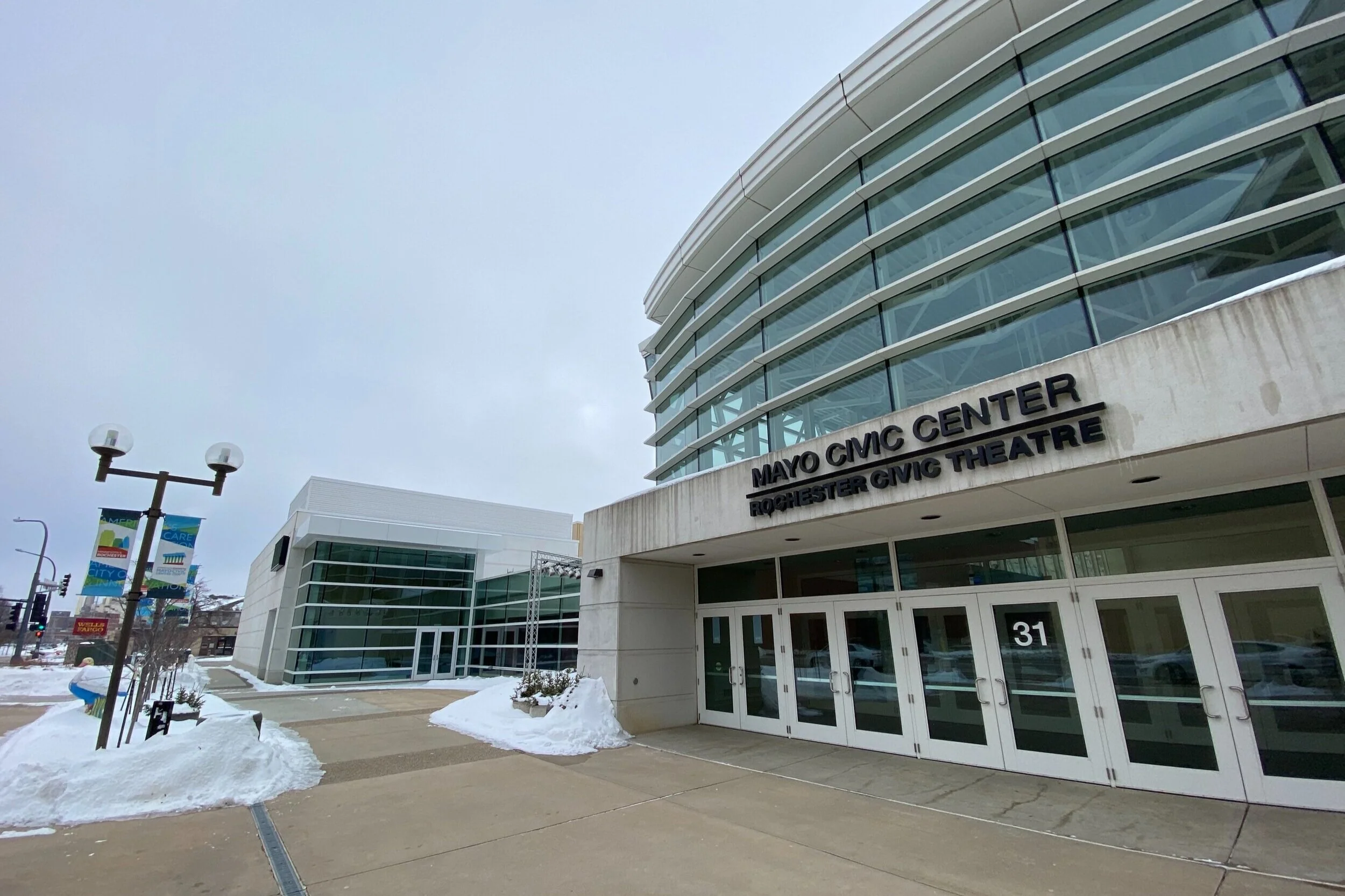Rochester Civic Theatre's financial situation even more dire than initially thought
The Rochester Civic Theatre is again in crisis mode.
On Tuesday, during a city council oversight meeting, new details were made public showing just how dire the financial situation at the theater had become under the tenure of former executive director Kevin Miller.
Miller abruptly resigned on Jan. 24, citing family reasons.
Related: City review to follow resignation of theater's director
Among the revelations: that the theater’s debt had become so burdensome that board members had to put up funds — totaling $100,000 — to keep the theater afloat. Sixty-thousand of that amount came in the form of loans that have yet to be paid back. As MPR News first reported last week, that is on top of a $300,000 loan taken out by Miller and the board this past fall.
Writing on his blog, Council Member Michael Wojcik said that loan was taken out without the city being notified — a violation of the city’s agreement with the theater.
While the organization operates independently of the city, the city does provide a building and a $200,000 annual subsidy to the theater.
“Kevin Miller was a snake oil salesman and the RCT Board bought the product,” wrote Wojcik. “Due diligence was not performed in his hiring, proper oversight was not provided, financial controls were not in place, and his dishonest and unethical conduct was never reported to city officials.”
Based on information presented Tuesday, a big driver of the financial troubles was Miller’s decision to use paid actors, as opposed to volunteers, for lead roles in several productions. Doing so helped drive attendance — including a series of sold-out shows — but also deep deficits.
RCT Board President Jeff Hayne said the board understood the risk it was taking on with the new strategy. However, it had expected “that the enthusiasm and excitement that our current and potential donors were sharing with us would translate into monetary support for our efforts.”
“As has become painfully aware to us all,” he told committee members Monday, “this did not materialize as we had hoped.”
Miller has not responded to requests for comment. In a September interview with Med City Beat, however, he defended the choice to use outside talent — stating that the use of professional actors allowed the theater to put on shows it would not be able to do otherwise. He pointed to the production of Ring of Fire: The Music of Johnny Cash as one example.
“We were able to do the show and that was the performance where, up until this point, box office had been trending about 40 percent,” said Miller. “Ring of Fire; we got to 97, so we saw that return on investment when they saw the talent and what it meant to have it right here on our stage.”
But the success on stage was not enough to turn around an organization that had been reeling in the wake of a scandal involving former director Gregory Stavrou, whose tenure with the theater ended with allegations of sexual harassment along with an uproar from longtime volunteers.
Even with loans coming in, the theater struggled to keep up with its bills. Twice in 2019 the organization found itself unable to make payroll. The theater also has outstanding debt with the Internal Revenue Service.
To move forward, officials from both the city and RCT board acknowledge changes will need to be made. What those look like is still unclear.
What is clear, though, is that the theater will have to do so without additional support from the city.
“If RCT makes it through this it will be without additional aid from taxpayers,” said Wojcik. “They certainly understand this. There will be changes, and the city will not be bailing out the organization.”
Council Member Shaun Palmer took it a step further — suggesting that, given the current circumstances, the organization owes it to the public to give back the money it received from the city.
“I would recommend you return your $200,000 and see where we can go from there,” he said. “I can’t demand it, but in good faith, I believe it would be a good first step toward building some trust with the City of Rochester.”
The oversight committee will meet again next Wednesday to discuss potential modifications to its relationship with the theater.
Sean Baker is a Rochester journalist and the founder of Med City Beat.








